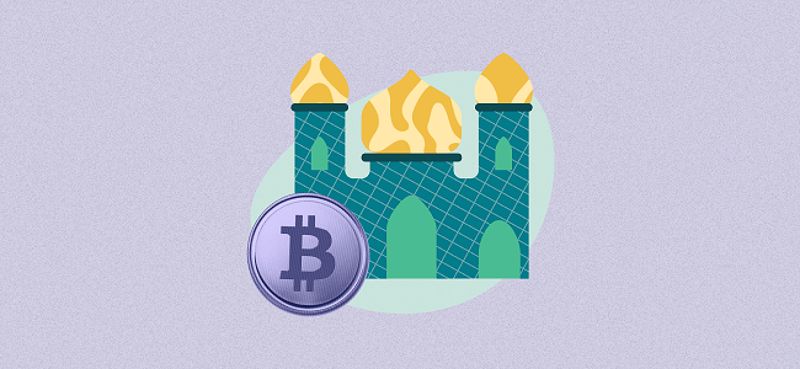As a Muslim investor, the question of whether crypto trading is halal or haram (permissible or forbidden) according to Islamic principles has been on my mind for some time. With the rapid growth of the cryptocurrency market, including a growing interest among my fellow Muslims, navigating this complex landscape has become increasingly important.
In June 2024, I set out to explore this topic in depth, diving into the ongoing debate and seeking to understand the perspectives of Islamic scholars and financial experts. This comprehensive guide shares my personal journey and the practical considerations I’ve uncovered for Muslim investors like myself who are interested in the world of cryptocurrencies.
Navigating the Gray Areas: My Practical Considerations
As I’ve grappled with the ongoing debate on the Islamic permissibility of cryptocurrency trading, I’ve had to carefully navigate the gray areas and make informed decisions that align with my faith. Here are some of the practical considerations I’ve taken into account:
Choosing Sharia-Compliant Cryptocurrencies
When exploring the cryptocurrency market, I’ve prioritized projects and tokens that adhere to Sharia principles. This includes:
- Interest-Free Transactions: Avoiding cryptocurrencies that offer interest-bearing returns or involve riba-based financial instruments.
- Transparency and Accountability: Selecting crypto projects with transparent operations, clear governance structures, and ethical practices.
I’ve consulted with Islamic finance experts and utilized resources that specialize in identifying Sharia-compliant cryptocurrencies, such as HalalChain and CoinMeet, to guide my investment decisions.
Managing Risk and Ethical Considerations
Cryptocurrency trading, regardless of its Islamic permissibility, carries inherent risks, and as a cautious investor, I’ve prioritized risk management strategies, including:
- Diversification: Spreading my investments across a range of Sharia-compliant cryptocurrencies and other asset classes to mitigate risk.
- Responsible Trading: Avoiding excessive leverage, stop-loss orders, and other speculative practices that may be considered haram.
- Ethical Oversight: Consulting with Islamic finance advisors who can provide guidance on navigating the ethical considerations of crypto trading.
By taking these practical steps, I’ve been able to explore the potential of cryptocurrency while upholding the ethical standards of my faith.
The Future of Crypto Trading and Islamic Finance
As the global financial landscape continues to evolve, the intersection of cryptocurrency and Islamic finance presents both challenges and opportunities. I’m encouraged to see the growing interest among Islamic scholars and financial experts in developing Sharia-compliant cryptocurrency guidelines and creating Islamic finance-focused crypto platforms.
These efforts aim to bridge the gap between the innovative potential of cryptocurrency and the ethical principles of Islamic finance, enabling Muslim investors like myself to participate in the crypto ecosystem while adhering to our faith’s teachings. As the industry matures, I’ll continue to stay informed and engage with trusted sources to ensure my crypto investments align with my religious convictions.
FAQ
Q: What are some examples of Sharia-compliant cryptocurrencies? A: The landscape of Sharia-compliant cryptocurrencies is still evolving, but some examples that have been considered include Hada DBank, HalalChain, and CoinMeet. It’s important to thoroughly research and consult with Islamic finance experts to ensure any cryptocurrency investment aligns with Sharia principles.
Q: How can I find a financial advisor who specializes in Islamic finance? A: Reaching out to local Islamic centers, mosques, or organizations that specialize in Islamic finance can be a good starting point to find a financial advisor who is knowledgeable about Sharia-compliant investment strategies, including cryptocurrency trading.
Q: What are the risks associated with crypto trading? A: Cryptocurrency trading carries several risks, including market volatility, potential for fraud, and the possibility of significant losses. As a Muslim investor, I’ve prioritized risk management strategies and ethical considerations to navigate these challenges.
Q: How can I ensure my crypto investments are ethical? A: To ensure my crypto investments are ethical and align with Islamic principles, I’ve prioritized Sharia-compliant cryptocurrencies, thoroughly researched the underlying projects, and consulted with Islamic finance experts. Avoiding excessive speculation, interest-bearing instruments, and potentially haram activities has been crucial in my investment approach.
Conclusion
My journey through the debate surrounding the Islamic permissibility of cryptocurrency trading has been a thought-provoking and eye-opening experience. As a Muslim investor, I’ve had to carefully weigh the arguments on both sides, consulting with Islamic scholars and financial experts to make informed decisions that align with my faith.
While the debate continues to evolve, I believe that the collaboration between Islamic finance experts and crypto innovators will be crucial in shaping the future of this dynamic intersection. By prioritizing Sharia-compliant cryptocurrencies, managing risks responsibly, and upholding the ethical principles of Islamic finance, Muslim investors like myself can explore the potential of this innovative financial technology while staying true to our religious convictions.
As I continue my journey in the world of cryptocurrency, I’m committed to staying vigilant, learning from trusted sources, and making investment decisions that not only contribute to my financial growth but also reflect the values and teachings of my faith. The future of crypto trading and Islamic finance holds great promise, and I’m excited to be a part of this evolving landscape.

